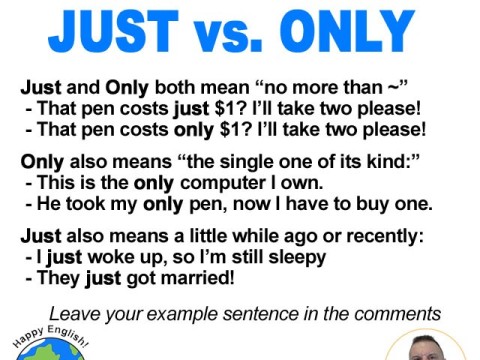only
🇬🇧/ˈəʊnli/ 🇺🇸/ˈoʊnli/📚 329 122 5中考高考You use only to indicate the one thing that is true, appropriate, or necessary in a particular situation, in contrast to all the other things that are not true, appropriate. 只有
adverb [关系副词]只,只有;仅在…情况下(或地方等);只是,不过(表示不重要、不严重等);(强调数量少或时间段)仅仅,才;不早于,直到…才;(除此之外别无可为)只能;(用于说明事情的恶果)只会;不料,竟然;只能(希望或愿望等);(强调行动恰当)完全,真正;刚刚(强调某事刚发生);险些没,差点没
You use only to introduce the thing which must happen before the thing mentioned in the main part of the sentence can happen.
只有…才• The lawyer is paid only if he wins.
adjective [原级]仅有的,唯一的;最好的,最适合的;独生的
An only child is a child who has no brothers or sisters.
独生的• The actor, an only child, grew up in the Bronx. 那位演员是位独生子,在布朗克斯区长大。
conjunction [推进连词]<非正式>不过,但是;<非正式>要不是,若非
Only can be used to add a comment which slightly changes or limits what you have just said. (
用来补充) 只是• It's just as dramatic as a film, only it's real. 这真和电影一样富有戏剧性,只不过它是现实。
单词造句:
